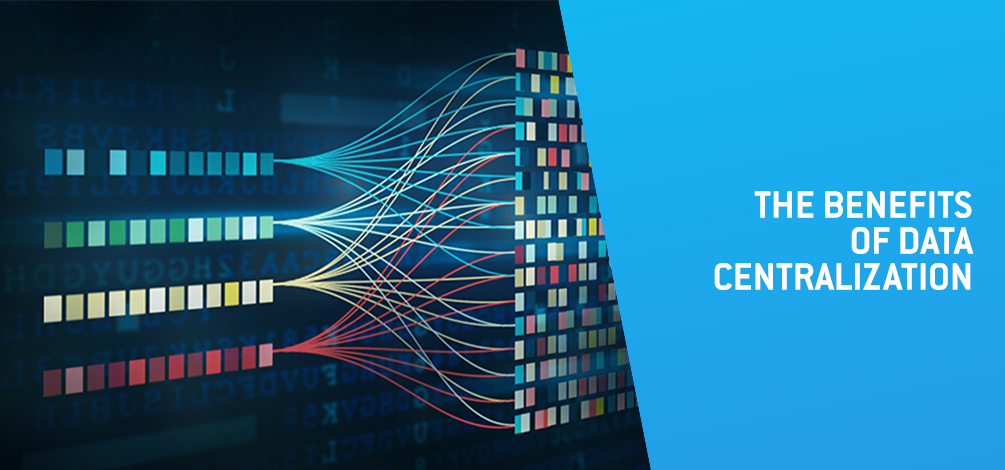The Benefits of Data Centralization

The centralization of industrial data is an industry game-changer.
A single manufacturing line can create hundreds of thousands of data points, and each one of them is often used once for a small task.
In the era of Industry 4.0, where data-driven decisions are paramount, the centralization of industrial data has emerged as a game-changer. Centralization refers to the practice of consolidating data from different sources into a single, unified platform.
This movement holds promise for streamlining processes, enhancing decision-making, and fostering innovation in the industrial sector.
Let us explore the main benefits of centralizing data.
1. Enhanced Data Integrity and Consistency
When data is scattered across multiple systems or databases, inconsistencies are bound to arise, which means spending more time correcting errors, time that could be used for other tasks.
Centralizing data ensures that everyone in the organization accesses the same version of the data. This consistency minimizes errors resulting from outdated or conflicting information. Additionally, centralized data management systems often include built-in validation mechanisms to further maintain integrity.
2. Simplified Analysis and Cost Reduction
Before centralization, engineers, managers, and data scientists might have spent hours or even days collecting data from different systems, only to face further challenges in organizing it. Centralized platforms provide one-stop access, dramatically reducing the time needed to gather data.
Cloud-based software solutions, like the Tekon IoT Platform, provide full data access, thus increasing the efficiency of processes. This efficiency accelerates data analysis, making it easier to derive actionable insights.
We should also consider the fact that maintaining multiple databases or storage systems can be expensive. There are infrastructure costs, licensing fees, and the overhead of ensuring all systems are interoperable.
Centralization reduces these overheads by eliminating the need for redundant storage solutions and streamlining IT operations, so, when companies centralize their data, they also gain complete control of it.
3. Improved Security and Compliance
Centralizing data storage often results in better security. Instead of patching and monitoring multiple systems, IT teams can focus their efforts on a single platform, ensuring it is protected against threats and minimizing the risk of data loss.
Moreover, with regulations like GDPR and others demanding strict data handling and storage practices, having a centralized system makes it easier to implement and monitor compliance measures.
4. Enabling Advanced Analytics and AI
The centralized collection and storage of data sets the stage for advanced analytics, machine learning, and artificial intelligence applications. These technologies often require large, consistent datasets. With centralization, businesses can implement predictive maintenance, optimize production processes in real-time, and drive innovation through AI-driven insights.
-01.jpg)
5. Facilitating Collaboration
In modern industries, collaboration is vital. Whether it is a design team in one country working with production in another or cross-functional teams requiring simultaneous access to data, a centralized system promotes seamless collaboration.
Everyone can work from the same data set, ensuring cohesive decision-making and faster project execution.
6. Simplified Management and Infrastructure
From a purely technical perspective, managing a single, centralized database is considerably simpler than dealing with several disparate systems. This simplicity reduces the scope for technical errors, eases the strain on IT teams, and ensures a smoother user experience for employees accessing the data.
On a strategic level, centralizing data can help foster a unified vision across an organization. With access to the same data, departments can align their objectives more efficiently, ensuring that the entire organization moves cohesively towards its main objectives.
7. Scalability for the Future
As industries grow, so does the amount of data they generate. Centralized systems are often designed with scalability in mind.
This forward-thinking design ensures that as a company expands, its data infrastructure can grow with it without the need for costly adjustments or migrations.
8. Data Redundancy and Backup
A well-designed centralized data system often incorporates redundancy—meaning critical data is stored in multiple locations.
This redundancy, coupled with regular backup practices, ensures that in the event of system failures, data loss is minimized or even entirely prevented.
Important Protocols for Data Centralization
The implementation of industrial data centralization heavily relies on standardized communication protocols, which is why it is important to mention some protocols. OPC Unified Architecture (OPC UA) is prominent for ensuring interoperability in industrial automation, allowing secure and reliable data transfer across diverse devices.
There is also Modbus, which has been vital for connecting electronic devices over networks in industrial monitoring, and MQTT, optimized for low-bandwidth, high-latency industrial environments.
As these protocols become standardized, they further streamline the centralization process, fostering a more interconnected industrial ecosystem.
Start Centralizing Data Today
Industrial data centralization is not just a technical shift, it is a strategic move that can push organizations to new heights.
By enhancing security, and paving the way for advanced analytics, centralization is positioning industries to harness the true potential of their data. As the wave of Industry 4.0 continues to sweep across the globe, companies that prioritize data centralization will likely find themselves at the forefront of innovation and operational excellence.
Why have multiple platforms for different types of data, when you can have one platform to manage and relate all the data?
Know more about the Tekon IoT Platform.
sales@tekonelectronics.com
+351 93 30 33 250